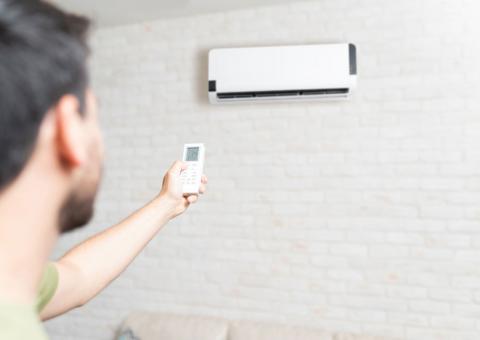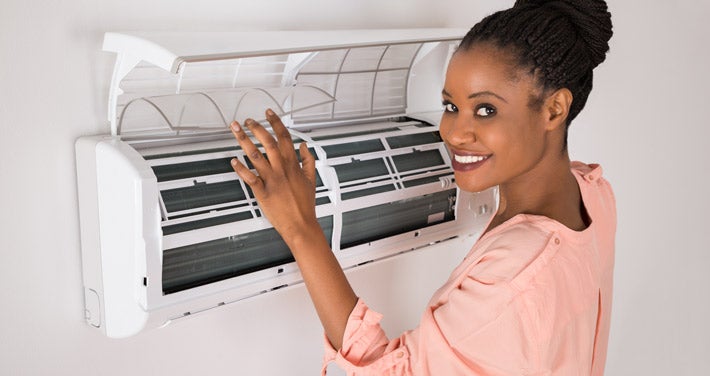Most of us are familiar with furnaces and boilers, which heat air or water and circulate throughout our homes to make them comfortable. Heat pumps, on the other hand, control the climate of our homes by transferring warm or cool air – rather than creating it – while lowering greenhouse gas emissions. Let’s take a closer look at how heat pumps work.
There are two primary air-source heat pump configurations: those with ducts, and those without. As the name implies, ducted heat pumps distribute warm or cold air throughout your home by way of ducts.
Ductless heat pumps – commonly referred to as mini-splits – typically serve one room or area of a building and don’t require any ductwork infrastructure. This can make them a versatile alternative, particularly for those converting from a forced hot water heating system.
Air-source heat pumps take the hot air inside your home and move it outside by running it through a set of coils (one on the inside unit, another in the outside unit) which contain a refrigerant liquid. It changes the refrigerant from liquid to gas, then back again, to continually move warm air from the inside to the outside – cooling your home in the process. When heat is called for, it simply reverses the process.
Did You Know? A standard air conditioner operates at 60 decibels, but an energy-efficient air-source heat pump runs at 40 decibels.
Heat Pump Advantages
Air-source heat pumps have been used for many years in more temperate climates, but advances in technology make them a potential alternative for space heating even in colder regions. Some of the advantages of heat pumps include:
- Able to produce warm and cool air from the same unit.
- Better dehumidification than standard central or portable air-conditioning units.
- The ability to assign “zones” to different parts of your home for custom comfort.
- Capable of using existing ductwork (in the case of a ducted heat pump).
- There are a variety of available configurations including wall-mounted units, floor-mounted units, ceiling cassettes, and air handlers, allowing for multiple installation options.
- Lower allergen disbursement compared to hot-air furnaces.
- Compatible with multiple controllers, including handheld remotes and Bluetooth mobile devices.
- Quiet, safe, and efficient operation.
- May be used in conjunction with solar panels for lower carbon emissions.
- Rebates on qualifying heat pump purchases may be available through MassSave.com and NHSaves.com.
MA Heat Pump Rate:
As part of the recent rate case, Heat Pump Rates are now available to MA Residential customers. This new rate class gives customers using heat pumps a reduced distribution rate during the winter months. Learn more about this rate and enroll.
Other Considerations
Here are some other important considerations when thinking about installing heat pump technology:
- Depending on the number of units you require, heat pumps can be expensive to install, with higher up-front costs.
- In New England, a heat pump’s efficiency may decline as the temperature drops. Employing a backup heat source may be economical depending on the rating of the heat pump system installed.
- Heat pumps require more maintenance, as they have more moving parts.
- Indoor heat pump components tend to be larger than those associated with forced hot water or air – but remember that a heat pump replaces your heating and air-conditioning units.
Heat pumps are a versatile way to keep your house comfortable while sparing the planet from harmful carbon emissions. They can be used in conjunction with your existing heating system during extreme cold, or with solar panels to further decrease your carbon footprint.
Learn more on our Heat Pump webpage.
Key Takeaways:
- Heat pumps are an efficient, environmentally friendly alternative to traditional HVAC and water heating systems.
- Heat pumps provide air-conditioning in homes without existing ductwork.
- Keeping the temperatures and your heat pump rating in mind, retaining a backup heating system may be prudent.
- Heat pumps are quieter, safer, and less likely to distribute allergens throughout your home.




